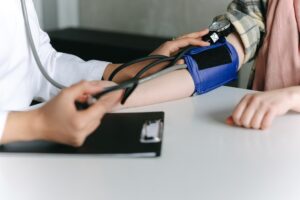
New guidelines from the American College of Cardiology and the American Heart Association say healthy adults without known heart disease should no longer take an aspirin a day to prevent a heart attack. It could actually do more harm than good.
The revised guidelines come in the wake of several major studies published recently in the New England Journal of Medicine which showed that low-dose aspirin did not extend life in otherwise healthy older adults and any preventive benefits were offset by the danger of internal bleeding and other side effects in people considered to be at low or moderate risk for heart disease.
The recommendations, released March 18, don’t apply to those who already have had a stroke or heart attack, or who have undergone bypass surgery or a procedure to insert a stent in their coronary arteries, according to the Heart Association. Aspirin still may be considered for very select high-risk adults ages 40-70, who are not at increased risk for bleeding. This Popular Science story explains why and how aspirin prevents blood clots which can lead to heart attacks.
The U.S. Preventive Services Task Force, an independent panel of national experts in disease prevention, recommends a low-dose aspirin regimen for adults 50 to 59 whose 10-year risk of developing cardiovascular disease is more than 10 percent. After age 60, the Task Force suggests individuals should weigh risks and benefits in consultation with their physician, based on their specific health profile. Low-dose aspirin is not recommended for those over age 70.
But the Task Force recommendation is based on an imperfect risk calculator and statistics taken from older studies, according to Erin Michos, M.D., associate director of preventive cardiology at the Ciccarone Center for the Prevention of Cardiovascular Disease at Johns Hopkins University School of Medicine and one of the authors of the new ACC guidelines. Thanks to decreased smoking rates, better management of hypertension, and healthier diets and lifestyles, the role of daily aspirin isn’t as important as it was decades ago as a primary preventive measure, she said.
The revised ACC guidelines include 10 take-home messages for clinicians:
- The best way to prevent heart disease, heart attack, or stroke is a healthy lifestyle throughout life.
- Adopting a team-based approach to care, including evaluation of the social determinants of health that affect individuals, should inform treatment decisions.
- Adults 40 to 75 years old who are being evaluated for cardiovascular disease prevention should undergo 10-year atherosclerotic cardiovascular disease (ASCVD) risk estimation and have a clinician–patient risk discussion before starting medication such as antihypertensive therapy, a statin, or aspirin. Additionally, coronary artery calcium scanning and assessing for other risk factors, can help guide decisions about preventive interventions in select individuals.
- All adults should consume a healthy diet that emphasizes the intake of vegetables, fruits, nuts, whole grains, lean vegetable or animal protein, and fish; they should minimize the intake of trans fats, red meat and processed meats, refined carbohydrates, and sugar-sweetened beverages.
- Adults should engage in at least 150 minutes per week of accumulated moderate-intensity physical activity or 75 minutes per week of vigorous-intensity physical activity.
- For adults with type 2 diabetes, improving diet and exercise habits are crucial. If medication is required, metformin should be the first-line therapy, with other drugs as secondary therapies if indicated.
- All adults should be assessed at every health care visit for tobacco use, and those who use tobacco should be assisted and strongly advised to quit.
- Aspirin should be used infrequently in the routine primary prevention of ASCVD because of lack of net benefit.
- Statin therapy is first-line treatment for primary prevention of ASCVD in patients with high LDL cholesterol levels (≥190 mg/dL), those with diabetes, who are 40 to 75 years of age, and those determined to be at sufficient ASCVD risk after a clinician–patient risk discussion.
- Non-pharmacological interventions are recommended for all adults with elevated blood pressure or hypertension. For those requiring medication, the target blood pressure should generally be less than 130/80 mm Hg.
Journalists may want to explore how physicians, nurse practitioners and other health providers in your community are getting the word out to patients, especially those who may be more socially isolated or unaware of these newer guidelines. Are there exercise, or cooking classes or heart-smart workshops available at low or no cost to help people make important lifestyle changes? Is the community one where it’s easy and safe to walk or do other regular physical activity?









